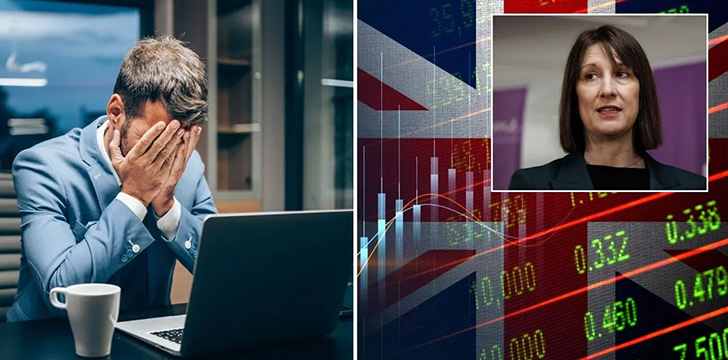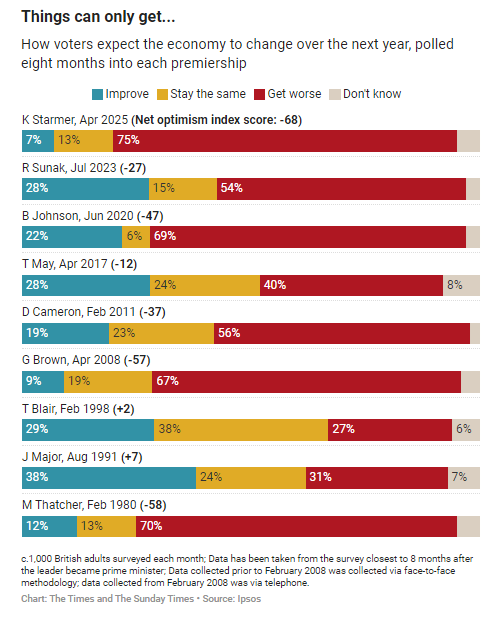 The chancellor Rachel Reeves (right).
The chancellor Rachel Reeves (right).
Pic.: gbnews.com
Optimism in the economy has slumped to the lowest level on record, below both 1979 and the aftermath of the global financial crisis of 2007-08, ‘The Times’ states.
Confidence in Britain’s economy has fallen to the lowest level ever recorded, below the global crash, Covid pandemic and winter of discontent, according to a poll.
The Ipsos Economic Optimism Index (EOI) has been recording net economic optimism in Britain since 1978.
According to the latest poll, carried out between April 2 and 8, 75 per cent of Britons expect the economy to get worse over the next 12 months and just 7 per cent think it will improve.
This equates to a net score of –68 points, taking into account the 13 per cent who think economic conditions will remain the same and the 5 per cent who don’t know.
This is lower than levels seen during some of the most challenging economic periods in recent history, including the January 1980 recession under Margaret Thatcher after the 1978-79 winter of discontent (–64), the global financial crisis of July 2008 under Gordon Brown (–64), and the cost-of-living crisis triggered by the pandemic and the invasion of Ukraine in June 2022 (also –64).
It comes just days after the International Monetary Fund (IMF) said that President Trump’s tariffs had unleashed a “major negative shock” into the world economy, and cut its forecasts for US, UK and global growth.
The IMF sees every major economy being hit; the UK is expected to grow 1.1 per cent this year, down from the 1.6 per cent predicted in January. It expects a sharper deterioration for the US, from 2.7 per cent to 1.8 per cent.

Analysis of economic optimism nine months into the tenures of all the prime ministers who have served over the past 47 years reveals the present level is the lowest recorded at this stage in office. The previous lowest figure of –58 points was recorded in February 1980, nine months into Thatcher’s tenure.
The negative outlook is reflected across all demographics, with only minor variations between age groups, social grades and genders. Men (–65) are slightly less negative than women (–71), and ABC1 social grades (–66) are marginally less pessimistic than C2DE grades (–72). People of all ages are also concerned, with pessimism increasing with age, at -59 points for those aged 18-34; –68 for 35-54 year-olds; and –75 for over 55s.
The survey of 1,010 UK adults reveals a worsening of the public mood since last month’s poll, when 67 per cent thought the economy would get worse and 13 per cent better.
Responding to to the poll, Mel Stride, the shadow chancellor, said: The IMF’s downgrade of the UK’s growth forecast should be a wake-up call for the chancellor Rachel Reeves. Her choices have left Britain under pressure. Higher inflation, weaker growth and collapsing confidence. Her high-tax, high-spend agenda is taking us back to the 1970s.”
read more in our Telegram-channel https://t.me/The_International_Affairs

 10:53 01.05.2025 •
10:53 01.05.2025 •






















